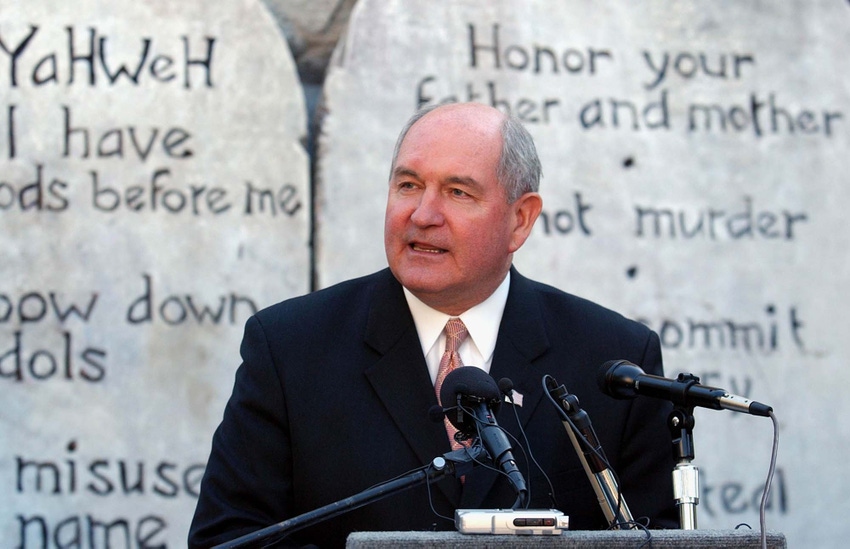April 17, 2017

By the time you read this former Georgia Governor Sonny Perdue will be days away from his confirmation hearing to become the last of the president’s cabinet appointments.
The Senate Committee on Agriculture, Nutrition and Forestry scheduled Perdue’s hearing to be confirmed as agriculture secretary on April 24, more than three months after he was nominated to the post.
One of the reasons the hearing got put over into April: The Senate could concentrate on confirming Neil Gorsuch to the Supreme Court. (Some observers asked why the rush since the Senate leadership never seemed to get in a hurry to fill the position in 2016, but we digress.)
So it’s a good thing nothing important was happening in agriculture, right? You start to wonder why we even need an agriculture secretary? We do for several reasons.
At a time when one in five farmers is on the brink of insolvency or have decided to auction equipment and rent their land rather than face another year of mounting debts, USDA has been unable to take any kind of leadership role in delivering assistance to help growers.
A year ago then-Agriculture Secretary Tom Vilsack proposed and ran interference with the White House Office of Management and Budget to persuade the federal government to provide a Cotton Ginning Assistance Program.
Vilsack, unfortunately, had turned down the cotton industry’s request he designate cottonseed as an “other oilseed,” which would have made producers eligible for ARC or PLC payments for cottonseed as part of the 2014 farm bill. But he proposed an alternative that provided $330 million in ginning assistance payments to producers last summer.
With acting Agriculture Secretary Michael Young “home alone,” so to speak, USDA doesn’t have a deputy secretary or any of the undersecretaries who would normally help plan and implement such programs. The only reason USDA is functioning is its career Civil Service employees.
Then there’s trade. With 50 percent to 80 percent of U.S. crops destined for the export market, agricultural trade is the engine that drives the farm economy. But the administration is giving mixed signals on trade, pulling out of the Trans-Pacific Partnership on one hand and threatening to wall off one of our biggest customers on the other.
Many Americans voted for the new president because they believed he could negotiate a better deal with China, which is both a major customer for crops like U.S. soybeans and a major violator of the World Trade Organization’s trade rules.
When President Trump met with Chinese President Xi Jinping at the Florida “White House” the weekend of April 7-9, there were no reports of “wins” on trade. That’s where Gov. Perdue, who has operated an export company and would be one of the few ag secretaries who grew up on a farm, should be playing a major role.
There will be other opportunities for Secretary Perdue (There is little to no opposition to his appointment) to weigh in on trade and other issues – if the president and his hawkish trade advisers will listen to him.
About the Author(s)
You May Also Like






